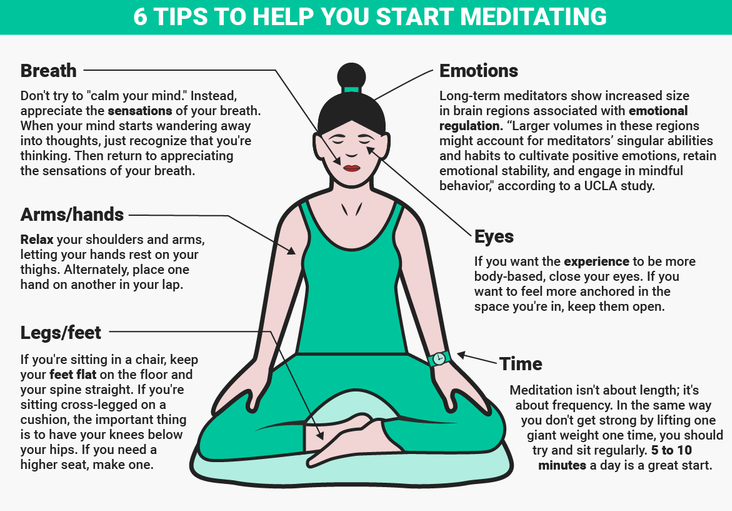Meditation and Mindfulness: A Powerful Duo
You’ve probably heard of mindfulness and meditation, however, both consist of slightly differing aspects. Both mindfulness and meditation involve mental processes, and each can offer some incredible benefits for your health and well-being.
Meditation and Mindfulness:
What is mindfulness? Mindfulness involves being aware. It concentrates on the present, rather than the future or past. When you are mindful, you are able to observe your feelings, without feeling challenged by them. |
Similar to meditation, being mindful offers benefits for your physical and mental health. It allows you to be fully aware of the present, offering better engagement with your day to day life. You can appreciate the present, which allows you to build better connections with people.
Mindfulness also aids stress relief, improves your ability to sleep and improves mental health conditions, such as depression and anxiety.
Meditation and Mindfulness: What is meditation?
Meditation is very similar to mindfulness. It involves calming your mind by acknowledging your present thoughts. In a way, it involves becoming familiar with the state of mindfulness. Again, there are many benefits of meditation. For instance, regular meditation will aid relaxation, improve symptoms of depression, and prevent feelings of stress. There are also physical benefits like lowering your blood pressure and alleviating tension in your muscles.
Regular meditation will allow you to transform your life by improving your overall health and well-being.
Mindfulness meditation
There are several ways to initiate mindfulness and meditation, and mindfulness meditation is just one popular method. This is a basic style of meditating that is simple for beginners to understand. You can meditate by yourself, via a class and instructor, or by an audio program such as Zen12. If you struggle with staying motivated, then guided meditation by audio or class is the best way to partake in meditation.
Getting started
Some forms of meditating involve using your concentration, which might include focusing on your breathing, a sensation, or repeating a mantra. Mindfulness meditation primarily involves building on your concentration to establish a relaxed state.
During mindfulness meditation, you will form a concentrated state of mind, in order to observe your emotions, without labeling your thoughts as bad or good. You’ll also come to reflect on the outer sounds and sensations that are a part of your current experience. You’ll be able to do this without focusing on a single idea or feeling, or considering past or future emotions. During mindfulness meditation, you will observe the thoughts entering your mind and be able to decipher which are the key to positive well-being. With continued meditation on a regular basis, you will become more self-aware and happier in dealing with varying emotions that you encounter.
|
Meditation and Mindfulness: An Exercise
Begin by sitting on a chair or on the floor with your legs crossed. Close your eyes and focus on your breathing. Capture the sensations in your mind as you inhale and as you exhale. |
Notice the air entering via your nose and exhaling via your mouth. Once your concentration has effectively fixated on your breathing, start to notice any sounds in the room. What can you hear? Expand your thoughts to sensations. What exactly can you feel? If your mind starts to stray, then focus on your breathing again to pull your thoughts back to the present. Participate in this simple exercise for ten minutes each day, and you’ll gradually feels more centered and attached to your inner self.
You can sign up to Zen12 for a free audio meditation program to experiment with an alternative style.
Think of meditation as me-time, a few minutes every day where you get to focus on the most important person in your life: You!
Give it a try and you’ll discover it’s not actually as difficult as you imagine.
Download your free meditation MP3!
Meditation and Mindfulness and Other Great Things for Your Brain

